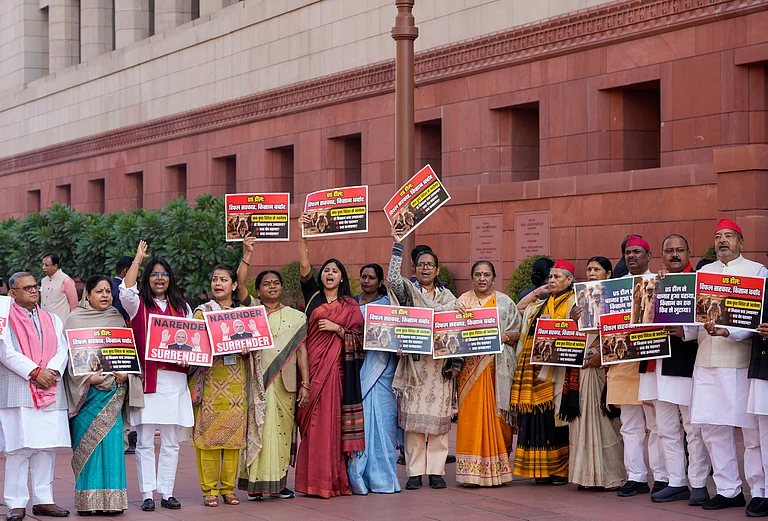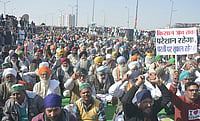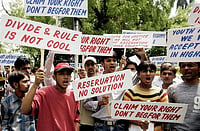‘Operation Z Live: Russia-Ukraine War’ by Neeraj Rajput
Published by Prabhat Prakashan in 2023
Even though wars and conflicts have been frequent in the past few decades, the Ukraine War has been one of a kind. This is the closest the West and Russia have come to a head-on collision since the Cold War. It is also unique in the way that it’s the first large-scale war of the ‘digital age’.
The Ukraine War has not just been televised but has been live-streamed, tweeted about in real-time, and fought in the digital domain as well to shape the global perception. It is in this domain that Neeraj Rajput’s ‘Operation Z Live: Russia-Ukraine War’ is truly unique. While most of the international reportage about the war has been from the Ukrainian side, Rajput’s book is an account of the war from Russia.
In covering the Ukraine War from Russia and Russia-held Ukrainian territories, Rajput has offered a rare glimpse into Russian society. He is aware of how Russia —or any host country for that matter— tries to shape the narrative in lieu of enabling access to war zones and officials. He devotes an entire chapter to information warfare.
Rajput has written the book in Hindi and that’s a unique selling point (USP). While there are many anchors sharing expertise on everything under the Sun, there are not many contemporary serious writers in Hindi on foreign and strategic affairs. Therefore, Rajput’s book is a welcome effort.
Rajput’s book is a mix of war reportage, commentary, and a memoir. Written in first-person, it details the travails of a reporter and also serves as the story of a storyteller. In 11 chapters, he writes about the war largely in chronological manner. He starts from the moment he and his cameraman were held by officials at the border of Russia and Russia-held Ukrainian territories. From there, he switches back to his arrival in Moscow and then details the struggle to get to the war zone.
‘Operation Z Live’ brings out several aspects often missed in mainstream Western coverage. While the Western media have pointed out that Russian President Vladimir Putin overestimated the support for Russia in Ukraine, Rajput reported Ukrainian refugees inside Russia. While the vast majority of Ukraine War refugees escaped to Europe from the Russian aggression, Rajput reported there are also full-fledged refugee camps of pro-Russia Ukrainians who escaped to Russia, whose villages have been ransacked either in crossfire or Ukrainian shelling.
From the get-go, the Indian ‘jugaad’ is a constant feature in the book, such as Rajput using Google Translate for communication or trying to navigate the Russia-Ukraine border with his single-entry visa. While this gives you a crucial peek into behind-the-scenes travails of newsgathering, it also tells you how Indian media organisations are not yet serious about war coverage. Even when Rajput was expected to go to the frontlines, he was not provided with any protective equipment by their employer.
“Despite reporting on terrorist attacks and the enemy’s running fire along the Line of Control (LoC), our channel had not taken these threats seriously. They believed that the military would always give their bulletproof jackets to reporters and cameramen. As a result, bulletproof jackets were never purchased [by the channel] for reporters covering riots and violent protests,” writes Rajput.
While Indian reporters in conflict zones bring the unique Indian perspective to the fore free of Western vested interest —as Satish Jacob did in his book ‘Satish Jacob from Hotel Palestine Baghdad’ during the Iraq Invasion— they do so at great personal risk with little institutional support. The CNN, BBC, Fox, or any other major Western outlet’s reporters are well-equipped with protective vests, goggles, and gas masks. In his book ‘Saved: A War Reporter’s Mission To Make It Home’, Fox’s Benjamin Hall wrote that Fox had booked three floors in a hotel in Ukraine for their reporters, producers, and camera personnel along with security guards.
Rajput’s chapters on the Mariupol, Donetsk, and Luhansk are particularly vivid in portraying the war’s brutalities. While he writes about the Russian aggression, he is also critical of the Ukrainians. He writes that President Volodymyr Zelenskyy drove his country into an open embrace of the West that was unacceptable to Putin. Now that he has tasted some success in the war, Zelenskyy is in no mood to stop, writes Rajput.
Rajput’s book might give you an impression in several places that he is giving Putin a free pass as he highlights Ukrainian propaganda or writes about the Russian reasoning for the war. While it’s correct that he is not as critical of Russia as most commentators, he does not cover up Russian excesses.
In one of the most detailed chapters, Rajput writes there was not a single building left standing unscathed in Mariupol. He writes, “There was perhaps no building in the city that had not been attacked with a missile or a bomb. Residential buildings, theatres, malls, shops, and restaurants were all scorched. Bombs were dropped such that the walls of buildings remained, but nothing remained inside.”
While the bulk of ‘Operation Z Live’ is about the Ukraine War, the final parts of the book are heavy with the travails of a reporter and the ‘behind the scenes’ life of a journalist most of the public is unaware of. Rajput paints a picture where a reporter is on their own with a disconnected managerial staff.
“Newsroom managers don’t like to know what conditions you have arrived at a location or what difficulties you went through. They only want end-result — whether you have done the story or not,” writes Rajput.
Despite these USPs ‘Operation Z Live’, however, ends too soon, which might put off some readers. The book also lacks maps. When Rajput goes into details of the conflict, accompanying maps of war zones or the places the author navigated during his time in the conflict zone would have enriched the reading experience.
For a different perspective on Ukraine and one of the rarer accounts of a war correspondent in Hindi, ‘Operation Z Live’ is a good read. It’s short and lucid and can serve as a good primer for the general Indian audience.

























